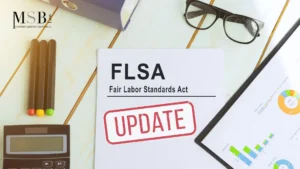Over the past 40 years, we’ve seen the impact of a business and corporate world driven by shareholders, and specifically the goal of maximizing shareholder wealth. The overly-aggressive pursuit of profits often harms those who make up the core of a company, its true “stakeholders” – all the employees, customers, and members of its community it touches. Many business owners, especially those driven by values, have felt the strain of operating in an environment that seems at odds with their most closely held beliefs. We can relate. For business owners motivated by their principles and values, the purpose of business extends beyond profit. It’s about building something that aligns with their deeper motivations, pursues a higher calling, and contributes to the greater good. The debate between “shareholder capitalism” and “stakeholder capitalism” has often centered on governance, ethics, and long-term impact. Yet, those who run values-driven businesses already know what matters: integrity, respect, and a commitment to lifting up not just the shareholders who primarily seek to maximize their ROI, but all the real stakeholders, i.e. all the participants who are critical to the business’s health, success, and impact. This perspective is not a fleeting trend, but a deeply held belief by many about how business should be conducted. It’s about creating workplaces where employees are valued, fostering thriving communities through responsible practices, and seeing success as more than just the bottom line. A Shared Vision for Businesses and Society At its heart, values-driven business is about putting people’s whole wellbeing at the center of every decision. This idea echoes the sentiments expressed in discussions about stakeholder capitalism: the notion that a business’s true owners are not merely its shareholders who earn a return on profits, but rather everyone who contributes to its success. This is not a new concept. In fact, companies used to operate this way—investing in their employees, supporting their local communities, and focusing on long-term health rather than only quarterly returns. And those who embrace values-driven business leadership have already seen the impacts on their bottom line. Teams with a shared sense of purpose and values perform 17% better than teams without a strong sense of purpose and values. And some of the world’s most ethical companies are also some of the most popular and profitable (Chick-Fil-A, anyone?) Many business owners today find themselves drawn to this values-driven model, not as a reaction against the status quo but as a return to what business was always meant to be: a force for good in society. They understand that focusing on stakeholder well-being is good for society, but also leads to a more resilient, thriving company. What they are often lacking are like-minded advisors who understand their values and can help them navigate the complexities, legal and financial and otherwise, of running such a business. Supporting the Unique Needs of Values-Driven Businesses Values-driven businesses often face complex challenges in aligning their operations with ethical principles, while striving for profitability and long-term success. Balancing financial goals with fair treatment of employees, community engagement, and sustainable practices requires careful navigation. Each decision must reflect core beliefs and consider the impact on all stakeholders. To support this journey, businesses need trusted partners who understand the weight of these choices. Thoughtful legal counsel plays a vital role here, helping to implement governance structures that reflect values, craft equitable contracts, and develop policies that support the well-being of employees, customers, and the community. This kind of support is essential for pursuing growth that benefits not just the company, but everyone it touches. Finding the Right Legal Partner to Support Your Vision Businesses that lead with values know that their mission requires more than passion; it requires practical support from trusted guides who understand the complexities of their journey. A law firm that aligns with their values can be an invaluable advisor, helping them integrate their valued principles into every aspect of business. It’s about finding legal counsel that doesn’t just focus on risk mitigation or compliance, but instead empowers business owners to lead with integrity and purpose. The right legal partner will assist in: shaping governance structure to reflect ethical commitments; crafting contracts that honor fair relationships; and developing and implementing growth strategies that echo a dedication to employee well-being. They will walk with clients through the legal intricacies, allowing the business’s values to shine through in every business decision. Moving Forward Together You don’t need to be convinced that values-driven business works. You’ve experienced it firsthand. What you need is a legal partner who sees the world as you do, who understands that the path to success is not paved solely by profits but by the positive impact you create along the way. At MSB Law, our approach to legal support is grounded in the same principles that guide your business. We help you integrate your values into your business practices in ways that are legally sound and reflective of who you are. Our services are not just about risk mitigation or compliance; they are about empowering you to lead with integrity and purpose. We live in a time when the call for values-driven business owners to stand up and lead is stronger than ever. As you continue on this journey, remember that you are not alone. The complexities you face, the choices you make, and the impact you create are all part of a broader movement toward a more equitable and sustainable future. At MSB Law, we are honored to support businesses like yours. We do more than just offer legal advice—we strive to serve as a trusted guide that respects your mission and helps you realize your values-driven vision. Together, we can build not only successful companies but also a legacy of positive impact on people and our communities that extends far beyond the confines of business. In the end, running a values-driven business is about staying true to what matters most. It’s about leading in a way that lifts others up and leaves a lasting and positive impact






